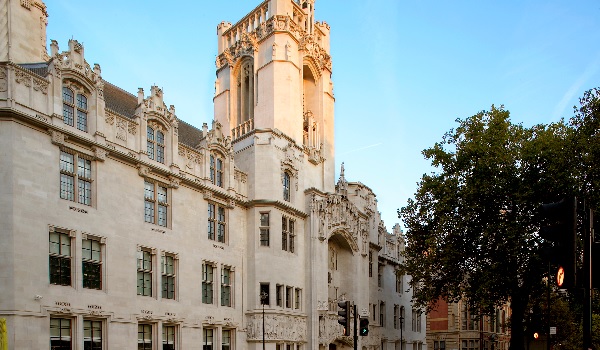Paedophile hunter groups do not violate human rights, Supreme Court rules
A convicted paedophile has lost a Supreme Court challenge over the use in criminal prosecutions of evidence gathered by paedophile hunter groups in covert ‘sting’ operations.
On Wednesday, July 15, the UK’s highest court unanimously dismissed an appeal which argued using such evidence was a breach of an individual’s human rights.
It said the interests of children have priority over any interest a paedophile could have in being allowed to engage in criminal conduct.
Mark Sutherland was convicted in August 2018 of attempting to communicate indecently with an older child, and related offences, after evidence collected by a paedophile hunter group was handed to police.
He brought a Supreme Court challenge arguing that his right to a private life, enshrined in Article 8 of the European Convention on Human Rights, had been breached.
The court was asked to rule on the issue of whether prosecutions based on evidence gathered in covert sting operations by paedophile hunter groups are compatible with a person’s human rights.
In the ruling, a panel of five justices unanimously dismissed Sutherland’s appeal and said the public prosecutor was entitled to introduce evidence obtained by a “decoy” at Sutherland’s trial to try to secure a conviction.
Announcing the court’s decision, Lord Sales said the court held there was “no interference with the accused’s rights” under Article 8 – which provides the right to a private life and correspondence.
He said: “It is implicit in Article 8 that in order to be protected the activity in question should be capable of respect within the scheme of values which the Convention on Human Rights exists to protect and promote.
“Children have rights under Article 8 as well. Under that provision, the state has a special responsibility to protect children against sexual exploitation by adults.
“This indicates that there is no protection under Article 8 for the communications by the accused in this case. The interests of children have priority over any interest a paedophile could have in being allowed to engage in the criminal conduct in issue here.
“Since the State has to deter offences against children in order to protect their rights, the public prosecutor was entitled to introduce the evidence from the decoy at the trial of the accused to try to secure a conviction.”
The court also found that Sutherland had “no reasonable expectation of privacy”.
Lord Sales said: “His communications were sent directly to the decoy. There was no prior relationship between the accused and the decoy from which an expectation of privacy could be said to arise.
“In addition, the accused believed he was communicating with a 13-year-old child, and it was foreseeable that a child of that age might share any worrying communications with an adult.”
The ruling says that in 2018, Sutherland matched up on Grindr with someone who, when he communicated with them, claimed to be a 13-year-old boy.
He sent sexual messages and images to the person and they later arranged to meet at Partick station, in Glasgow.
In reality, the person Sutherland was communicating with was not a child but a “decoy” – a member of a paedophile hunter group called “Groom Resisters Scotland”.
Two other members of the group confronted Sutherland at the arranged meeting, broadcasting the encounter on social media and handing the evidence to the police.
Sutherland appealed against his conviction on the basis that the covert investigation, and the use of the resulting evidence by the authorities, breached his human rights.
The Supreme Court judgment noted: “Groom Resisters Scotland is one of several organisations deploying similar operating methods which operate in Scotland and other parts of the UK.
“The police are aware that there are a number of ‘hunter’ organisations operating in Scotland and across the UK, and evidence obtained from those organisations has led to a number of criminal investigations and prosecutions.”
At a hearing in June, a panel of five justices, including the court’s president Lord Reed, Gordon Jackson QC, Dean of the Faculty of Advocates, representing Sutherland, argued that “a huge number” of cases were prosecuted on the basis of information from hunter organisations.
There was a large amount of guidance on these organisations, he said, but added “what we have is tacit encouragement of these groups”.
The barrister argued that what hunter groups were likely to take from the fact that many cases were prosecuted was that even if there were “reams of documentation”, “at the end of the day, we’re pretty sure if we carry on doing it, they’ll prosecute”.
“That’s systemic tacit encouragement,” Mr Jackson added.
Alison Di Rollo QC, Solicitor General for the Crown Office and Procurator Fiscal Service, Scotland’s prosecution service, which opposed the appeal, argued that the criminal prosecution of sexual conduct between an adult and a child “does not engage” someone’s rights to privacy.
“There is no right to respect for such behaviour in a democratic society,” she said.







